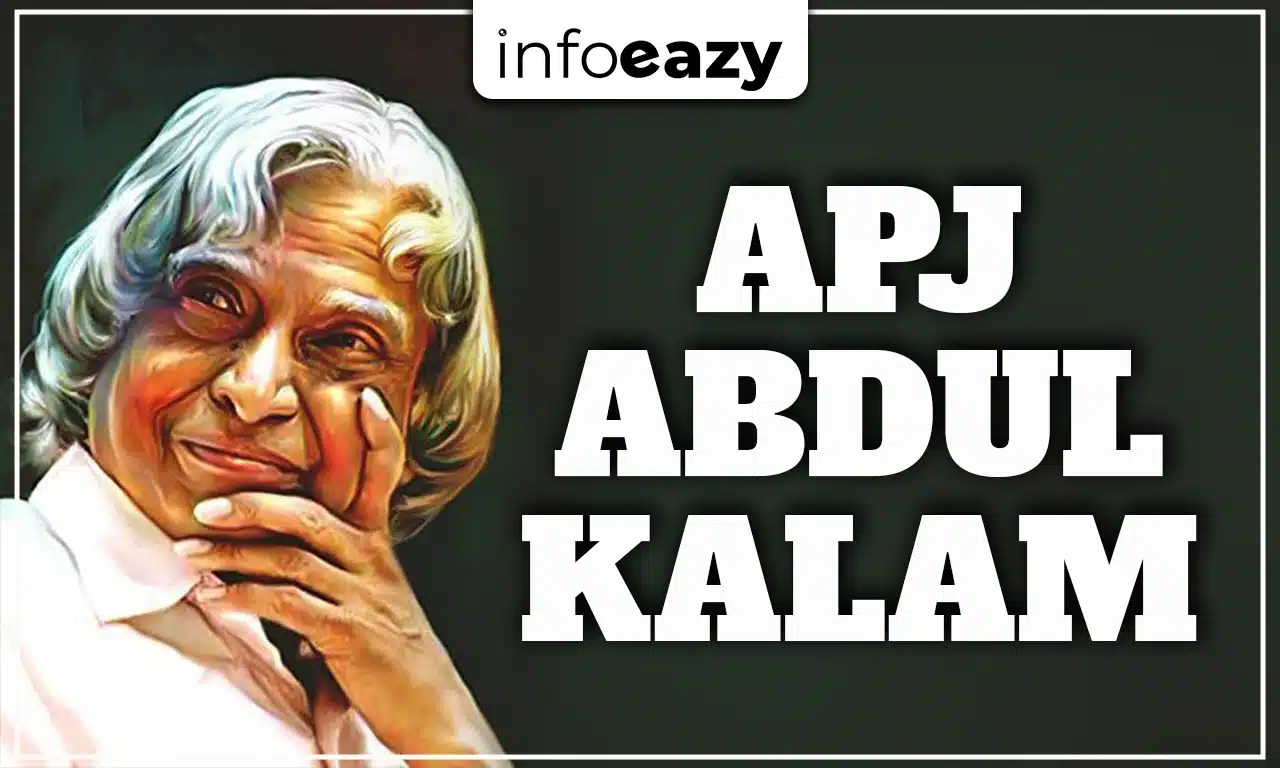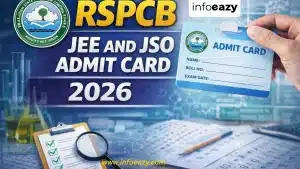Dr. APJ Abdul Kalam, widely known as the “Missile Man of India”, was one of the most respected scientists, leaders, and visionaries of modern India. Born in 1931 in Rameswaram, he rose from humble beginnings to become the 11th President of India. His life is remembered for his scientific contributions, simplicity, patriotism, and inspiring thoughts for youth.
APJ Abdul Kalam
Dr. APJ Abdul Kalam remains one of the greatest Indians of all time. From a small-town boy to becoming the President of India, his journey reflected hard work, intelligence, and humility. His contributions in science, defense, education, and nation-building made him a true legend. His life teaches us to dream big, work hard, and serve selflessly.
Biography of APJ Abdul Kalam
APJ Abdul Kalam’s full name was Avul Pakir Jainulabdeen Abdul Kalam. He was born on 15 October 1931 in a poor Tamil Muslim family in Rameswaram, Tamil Nadu. Despite financial struggles, his dedication and hard work made him one of the greatest scientists and leaders of the nation. He passed away on 27 July 2015 while delivering a lecture at IIM Shillong.
| Personal Information of APJ Abdul Kalam | |
| Aspect | Description |
| Full Name | Avul Pakir Jainulabdeen Abdul Kalam |
| Popular Title | Missile Man of India, People’s President |
| Date of Birth | 15 October 1931 |
| Place of Birth | Rameswaram, Tamil Nadu |
| Father’s Name | Jainulabdeen |
| Mother’s Name | Ashiamma |
| Profession | Scientist, Teacher, Politician |
| Presidency Term | 2002 – 2007 |
| Date of Death | 27 July 2015 |
| Place of Death | Shillong, Meghalaya |
Early Life of APJ Abdul Kalam
APJ Abdul Kalam grew up in a simple household where his father worked as a boat owner and imam of a local mosque. Despite poverty, his family instilled values of honesty, hard work, and spirituality. Kalam helped his family financially by distributing newspapers as a child, which taught him discipline and responsibility.
Education of Abdul Kalam
Kalam studied at Schwartz Higher Secondary School and later graduated in Physics from St. Joseph’s College, Tiruchirappalli. He then pursued Aerospace Engineering at the Madras Institute of Technology. His dream of becoming a fighter pilot could not be fulfilled, but his strong academic background led him toward a brilliant career in science and defense research.
Scientific Career of Abdul Kalam
Kalam joined the Defense Research and Development Organisation (DRDO) and later the Indian Space Research Organisation (ISRO). He played a key role in developing India’s Satellite Launch Vehicle (SLV-III), which successfully deployed the Rohini satellite in 1980. Known as the “Missile Man,” he contributed to the development of Agni and Prithvi missiles, strengthening India’s defense system.
Kalam’s Role in Pokhran II Nuclear Test
In 1998, APJ Abdul Kalam played a major role in the Pokhran II nuclear tests, which established India as a nuclear power. His leadership in missile technology and nuclear weapons programs gave India global recognition. This achievement made him a national hero, symbolizing scientific progress, defense preparedness, and self-reliance.
Presidency of APJ Abdul Kalam
Kalam was elected as the 11th President of India in 2002 with overwhelming support from both the ruling party and the opposition. Popularly called the “People’s President,” he worked to inspire youth and encouraged education, innovation, and national development. His presidency was marked by simplicity, humility, and a vision for a developed India.
Kalam’s Contributions to Space and Defense Technology
APJ Abdul Kalam’s contributions in space and defense made India self-reliant. He worked in India’s first indigenous satellite launch program, developed long-range ballistic missiles, and promoted defense technology research. His role in the Integrated Guided Missile Development Program (IGMDP) established him as one of the finest scientific leaders of independent India.
Books Written by APJ Abdul Kalam
Dr. Kalam was also a gifted writer who authored several inspirational books. His most famous book is “Wings of Fire,” an autobiography that narrates his journey from a small town boy to the President of India. Some of his other popular works include:
| Books Written by APJ Abdul Kalam | ||
| Book Title | Year of Publication | Theme/ Subject |
| Wings of Fire | 1999 | Autobiography |
| Ignited Minds | 2002 | Youth & Nation Building |
| India 2020 | 1998 | Vision for Developed India |
| Mission India | 2005 | Empowering Youth |
| Transcendence | 2015 | Spiritual Reflections |
Quotes by APJ Abdul Kalam
APJ Abdul Kalam’s quotes continue to inspire millions. His words reflect wisdom, positivity, and encouragement for students and youth. Some of his famous quotes include:
- “Dream, dream, dream. Dreams transform into thoughts, and thoughts result in action.”
- “If you want to shine like a sun, first burn like a sun.”
- “Failure will never overtake me if my determination to succeed is strong enough.”
- “You have to dream before your dreams can come true.”
Awards and Honors of APJ Abdul Kalam
Kalam received several national and international awards for his outstanding contributions. He was honored with the Padma Bhushan (1981), Padma Vibhushan (1990), and the Bharat Ratna (1997), India’s highest civilian award. Universities across the world awarded him honorary doctorates, recognizing his scientific achievements and leadership. His awards show the respect he commanded in the fields of science, education, defense, and global peace.
| Awards and Honors of APJ Abdul Kalam | ||
| Year | Award/ Honor | Presented By/ Country |
| 1981 | Padma Bhushan | Government of India |
| 1990 | Padma Vibhushan | Government of India |
| 1994 | Distinguished Fellow Award | Institute of Directors, India |
| 1997 | Bharat Ratna | Government of India |
| 1997 | Indira Gandhi Award for National Integration | Indian National Congress |
| 1998 | Veer Savarkar Award | Government of India |
| 2000 | Ramanujan Award | Alwars Research Centre, Chennai |
| 2007 | King Charles II Medal | Royal Society, UK |
| 2009 | Hoover Medal | American Society of Mechanical Engineers (ASME) |
| 2013 | Von Braun Award | National Space Society, USA |
| 30+ Numbers (Several Years) | Honorary Doctorates | Universities across the globe |
Death of APJ Abdul Kalam
On 27 July 2015, APJ Abdul Kalam passed away while delivering a lecture at the Indian Institute of Management (IIM), Shillong. He collapsed during his speech and later died of cardiac arrest. His death was mourned nationwide, and he was given full state honors. He was laid to rest in Rameswaram.
Also Read: Chandrashekhar Azad
Lifestyle of APJ Abdul Kalam
Despite being the President of India, Kalam lived a simple life. He never married and had no personal wealth or property except books, a veena, clothes, and a few personal belongings. His humility, honesty, and dedication to the nation made him a true role model for every Indian.
Kalam’s Vision for India 2020
Kalam strongly believed that India could become a developed nation by 2020 through science, technology, and education. His vision emphasized rural development, healthcare, defense preparedness, and youth empowerment. His ideas continue to guide policymakers and inspire people to work for a self-reliant and prosperous India.
Legacy of APJ Abdul Kalam
APJ Abdul Kalam’s legacy is not limited to science and politics. He inspired millions through his books, lectures, and simple lifestyle. His birthday, 15 October, is celebrated as World Students’ Day in honor of his love for education and students. His life remains a beacon of hope for future generations.
Important Facts Related to APJ Abdul Kalam
The important facts related to the contribution and life of Dr. APJ Abdul Kalam has been listed below for the perspective of competitive exams:
- Born on 15 October 1931 in Rameswaram, Tamil Nadu.
- Known as the Missile Man of India for his role in missile development.
- Served as the 11th President of India (2002–2007).
- Authored books like Wings of Fire and Ignited Minds.
- Awarded Bharat Ratna in 1997.
- Passed away on 27 July 2015 in Shillong.
APJ Abdul Kalam FAQs
Q1. When was APJ Abdul Kalam born? +
Q2. Why is APJ Abdul Kalam called the Missile Man of India? +
Q3. What books did APJ Abdul Kalam write? +
Q4. When did APJ Abdul Kalam serve as President of India? +
Q5. When did APJ Abdul Kalam die? +
Tags: APJ Abdul Kalam




